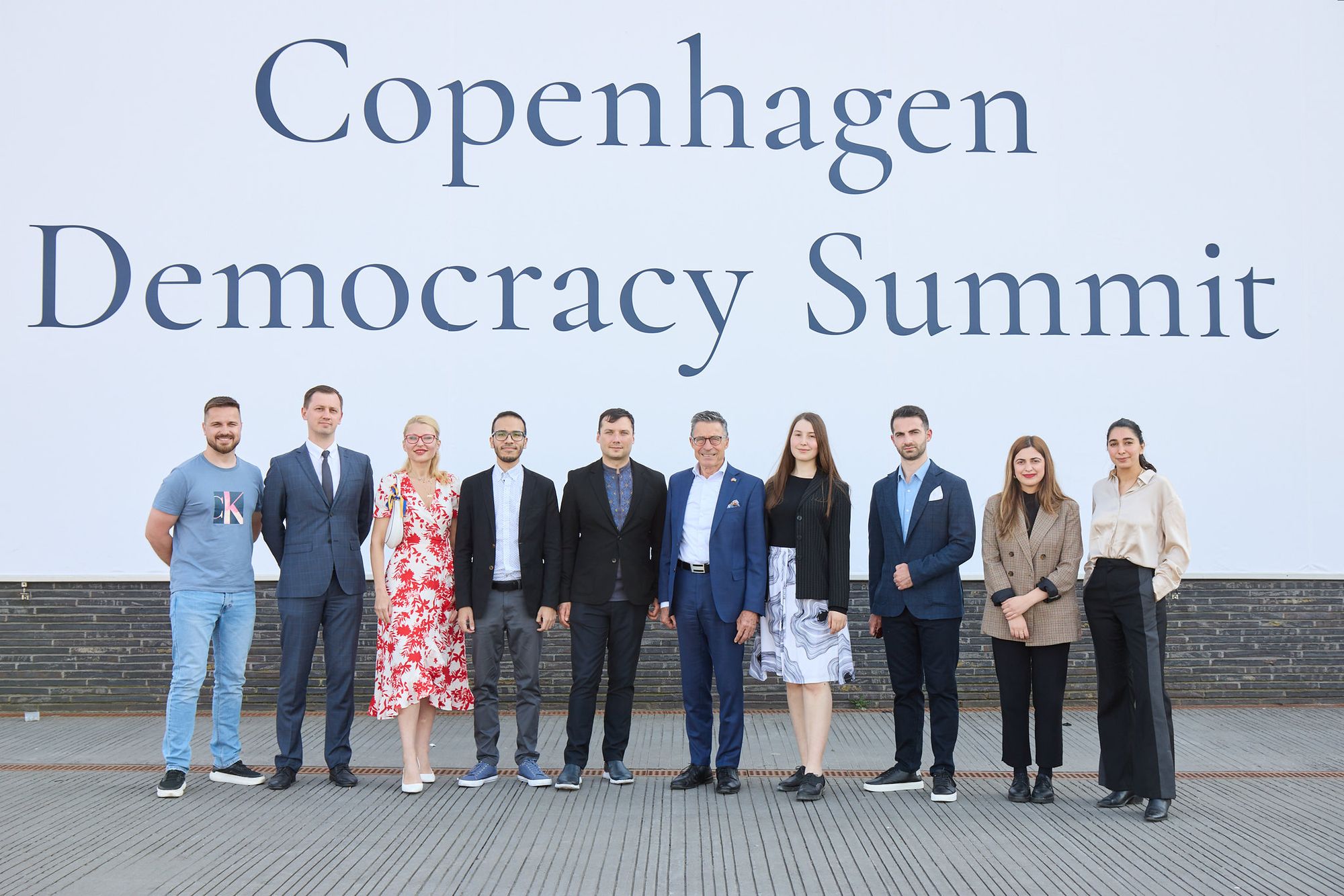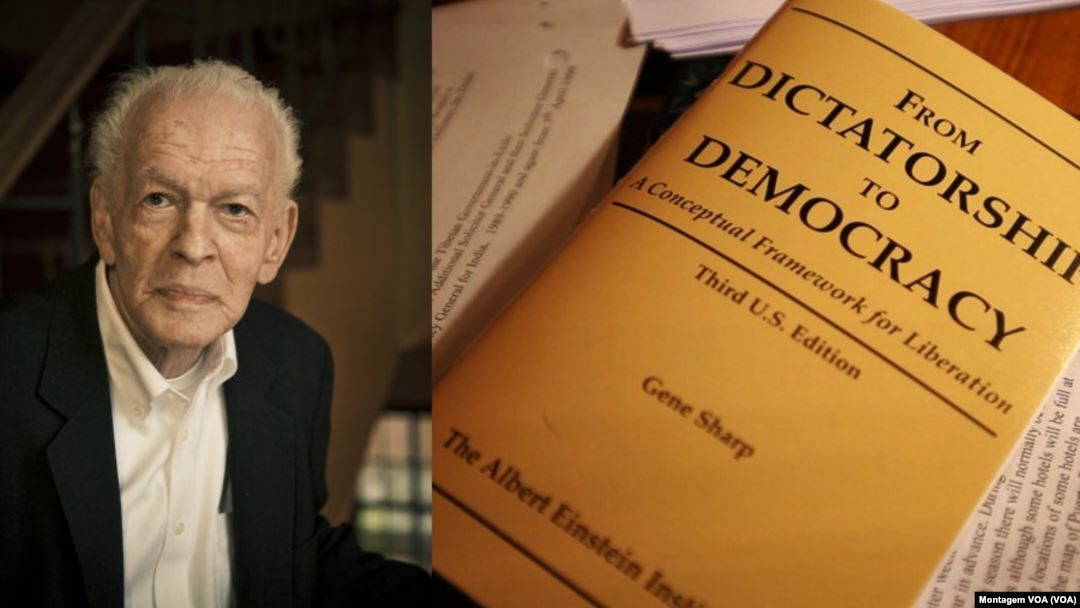
💡 Musings of The Angry Optimist: The power of democracy activism and technology
At the Copenhagen Democracy Summit, I think about how technology can contribute to democracy.
Share this story!
📱🗳️ Update the 198 methods of non-violent action
I've had the great honor of being a mentor to this year's Democracy Tech Fellows selected by the Alliance of Democracies. Young startup entrepreneurs from Ukraine, Moldova and Georgia.
Here at the Copenhagen Democracy Summit, they've pitched their startups and ideas. Proud as a rooster (that is a weird Swedish saying) I sat there in the audience, clucking contentedly, even though my contribution was minimal.

In my talk to them earlier this year, I recommended Gene Sharp's 198 methods for non-violent action. It's a list of 198 ways to resist dictatorships. Perhaps most famous for this:
18: Displays of flags and symbolic colors
That's where all the color revolutions come from.

The 198 methods were primarily compiled before the internet. Despite this, they're surprisingly relevant, but could be expanded with the technological resources we have today.
One of this year's fellows, Raluca Gindea, wants to create an AI parliament. Here, AI, like ChatGPT, will help summarize and explain legislative proposals and let people vote.
We talked about creating an AI bot that people can ask questions about what's happening in parliament.
When I was developing Warp News' AI bot, WALL-Y, I thought of another kind of AI bot. One that mocks a dictator, like Vladimir Putin. Humor is indeed another important ingredient in resistance.
35. Humorous skits and pranks
A dictator keeps people in check with violence and threats of violence. People get scared. But if you can laugh at the dictator, the fear can ease a bit. It could be a first step to being part of other types of resistance.

A big advantage of using technology and digital tools in the fight against dictatorship is that those of us lucky enough to live in a democracy can help. We can create the foolish AI bot Putin together with Russian dissidents.
Please check out my essay on technology and democracy, which I used as a starting point for my talk to the AoD's Tech Fellows.
 Warp NewsMathias Sundin
Warp NewsMathias Sundin
🤯 The pessimist template
Yann LeCunn is one of three AI godfathers.
He shared the Turing Prize with the now well-known Geoffrey Hinton. Whom Snoop Dogg called "that old dude" who "created AI". Hinton didn't do that, but he was crucial in ensuring that we now have AI based on neural networks.
Yann LeCunn is one of two other "godfathers". However, he is not worried that AI will annihilate humanity. Which he often debates on Twitter.
There, he also formulated a pessimist template that carries a lot of weight.
The pessimist's template:
— Yann LeCun (@ylecun) May 2, 2023
"[x] is a major problem in the world and [y] is going to make it a lot worse"
x in {climate change, inequalities, authoritarianism, unemployment, disinformation,...}
y in {AI, smartphones, social media, video games, internet,...}
👿 It's good for children to be bored... or is it?
In the evenings, I read an Alfie Atkins book to my son. The message in it is that it's good to be bored. It's not just there you hear that children are overstimulated. They should sit and be bored more often. And not just children. Even teenagers and adults should be more bored.
But maybe that wouldn't be so good... because this paper shows that being bored leads to an increased risk of sadism!
We demonstrate that sadistic tendencies are more pronounced among people who report chronic proneness to boredom in everyday life.
💡 Tips
A long list of the best space books
They've updated the page with technical development.
AI Experts Aren’t Always Right About AI
Tyler Cowen argues that AI risks must be weighed against the risks of missed opportunities, which I among other things brought up in the pause-AI-doomerism-letter.
Mathias Sundin
The Angry Optimist
By becoming a premium supporter, you help in the creation and sharing of fact-based optimistic news all over the world.
